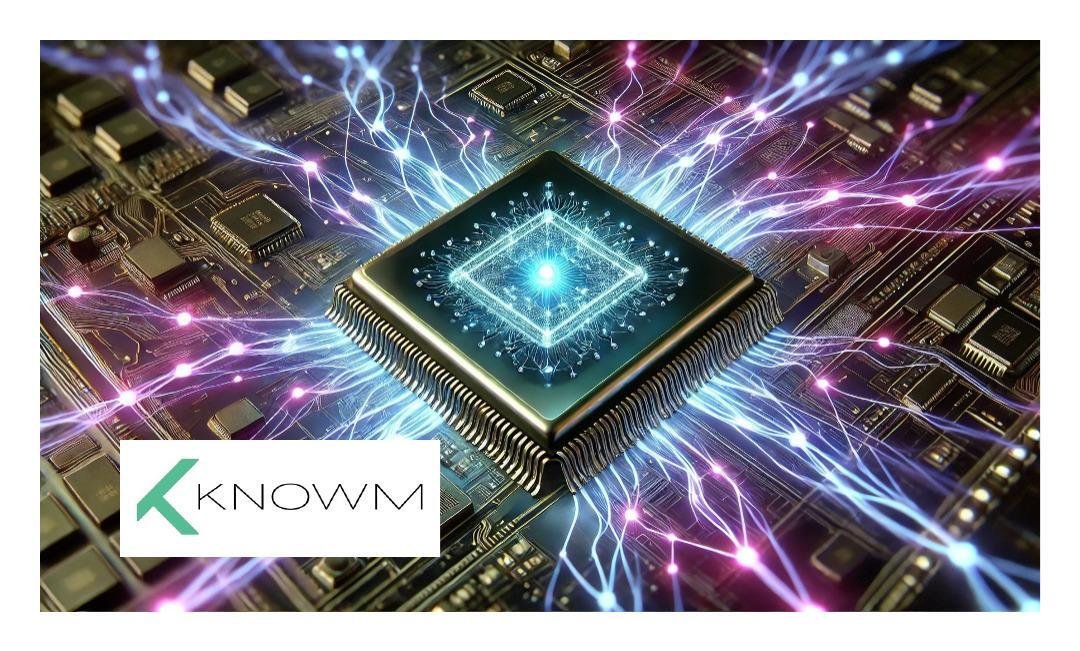The Role of Patents in Protecting AI Chip Innovations
The rapid advancement of artificial intelligence (AI) has driven an increasing demand for specialized hardware optimized for machine learning and neuromorphic computing. Knowm, Inc., a pioneering company in the AI hardware space, has emerged as a leader in this field by bringing the world’s first commercially available memristor chip to market. Knowm’s memristor technology represents a breakthrough in efficient, adaptive computing, and its extensive patent portfolio has played a crucial role in securing its competitive advantage.
What is the Knowm Memristor Chip?
Memristors are revolutionary electronic components that can store and process information in a way that closely resembles the function of synapses in the human brain. Unlike traditional transistors, memristors retain memory without constant power, making them ideal for energy-efficient AI computing. Knowm’s unique memristor chip, simply referred to as "Knowm," integrates these advanced properties into a commercially viable semiconductor device designed for neuromorphic computing applications.
By leveraging memristor-based architectures, the Knowm chip enables highly efficient machine learning algorithms, edge AI processing, and real-time data analysis, all while consuming significantly less power compared to conventional AI chips. This makes the Knowm chip a game-changer for industries requiring compact, low-power AI solutions, such as autonomous systems, robotics, and embedded AI devices.
How Knowm Became the First to Market with a Memristor Chip
Knowm, Inc. was originally founded as KnowmTech, LLC in the early 2000s with a mission to develop cutting-edge AI hardware. While memristors have been a topic of research for decades, Knowmâ distinguished itself as the first company to successfully commercialize a memristor chip. This achievement was made possible through years of R&D, strategic patent filings, and a commitment to pioneering neuromorphic computing technology.
By securing strong intellectual property (IP) protections, Knowm was able to safeguard its innovations from competitors while also establishing itself as a leader in the emerging AI hardware industry. The company's memristor chip has since gained attention for its ability to accelerate AI applications with greater efficiency than traditional silicon-based processors.
The Value of Patents in AI Hardware and Software
For companies developing AI hardware, securing patents is crucial to protecting proprietary technologies and ensuring long-term success. Patents prevent competitors from copying or reverse-engineering unique innovations, allowing businesses to maintain market leadership and attract investors. In the case of Knowm, its patents not only cover its groundbreaking memristor chip but also the AI algorithms and neuromorphic computing methods that drive its functionality.
Knowm’s patent strategy has provided the company with a competitive moat, enabling it to develop and commercialize AI hardware without the immediate threat of market saturation by larger semiconductor firms. This demonstrates the power of patents in fostering innovation and supporting the growth of emerging technology companies in the AI sector.
Key Knowm Patents Protecting AI and Memristor Technologies
Alex Nugent, the founder of Knowm, Inc., has built an extensive patent portfolio covering neuromorphic computing architectures, memristor devices, and adaptive learning algorithms. These patents, granted under Knowm, Inc. and its predecessor, Knowm Tech, LLC, provide legal protection for the company’s core technologies and products.
Some most notable patents in Knowm’s portfolio include:
Anti-Hebbian and Hebbian (AHaH) Computing – US Patent 11,521,045 (granted Dec 6, 2022) covers unsupervised learning methods using Knowm’s kT-RAM technology, a key component of its neuromorphic computing approach.
Topologies of Unit Crossbars – US Pub. 2022/0085107 (published Mar 17, 2022) describes memristor crossbar array architectures, fundamental to Knowm’s AI chip design.
Autonomous Vehicle (LIDAR Feature Extraction) – US Patent 11,237,556 (granted Feb 1, 2022) details AHaH-based LIDAR data processing for AI-driven autonomous vehicles.
Thermodynamic-RAM Technology Stack – US Patent 10,311,357 (granted June 4, 2019) protects Knowm’s kT-RAM memory architecture optimized for neuromorphic computing applications.
AHaH Computing with Thermodynamic RAM – US Patent 10,049,321 (granted Aug 14, 2018) covers AHaH circuits forming kT-RAM cores, a key aspect of Knowm’s AI hardware.
Memristor Apparatus with Metastable Switching – US Patent 9,679,242 (granted June 13, 2017) describes memristor devices with metastable switches and AHaH feedback, crucial for Knowm’s AI chip efficiency.
These patents, along with many others in Knowm’s portfolio, establish a strong legal foundation for the company’s AI chip innovations in neuromorphic computing. By protecting both the hardware and software aspects of its technology, Knowm ensures that its memristor-based AI computing solutions remain unique and defensible in the market.
Conclusion: Patents as a Strategic Asset for AI Chip Companies
Knowm, Inc. exemplifies how a well-executed patent strategy can enable groundbreaking technology companies to bring first-of-their-kind innovations to market. By securing patents covering its memristor chip designs, AI algorithms, and neuromorphic computing methods, Knowm has positioned itself as a leader in the AI hardware space.
As AI-driven computing continues to evolve, companies developing novel semiconductor technologies must prioritize IP protection to maintain their competitive edge. The success of Knowm’s memristor chip demonstrates how patents not only safeguard innovation but also facilitate commercialization, investment, and long-term industry leadership.

